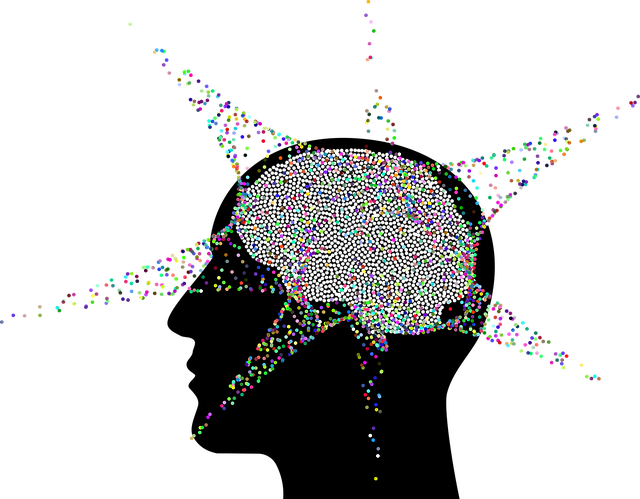Alcohol abuse by parents can have severe and lasting effects on young children's emotional development, leading to long-term mental health issues. Specialized therapy focusing on coping mechanisms, safety, and resilience through mind over matter principles is crucial early intervention tools. Public awareness campaigns using creative storytelling dispel myths, promote positive behaviors, and encourage open dialogue about mental wellness, with a focus on inner strength development. Effective therapy for affected children requires tailored, sensitive approaches addressing developmental needs, cultural competency training, and burnout prevention strategies. Campaign success relies on strategic planning, evaluation using data-driven analysis, continuous improvement, and Mood Management techniques.
Public awareness campaigns play a pivotal role in addressing critical issues like alcohol abuse among young children. This article delves into the multifaceted approach to combating this growing concern. We explore the profound impact of alcohol abuse on vulnerable children, highlighting the urgent need for prevention and education strategies. Through examining successful campaign implementations, we uncover best practices, including tailored therapy strategies focused on affected youth. By integrating evaluation methods, campaigns can continuously improve, ensuring a lasting positive effect in managing and preventing alcohol abuse among young children.
- Understanding the Impact of Alcohol Abuse on Young Children
- The Role of Public Awareness Campaigns in Prevention and Education
- Designing Effective Therapy Strategies for Young Children Affected by Alcohol Abuse
- Implementation, Evaluation, and Continuous Improvement of Public Awareness Campaigns
Understanding the Impact of Alcohol Abuse on Young Children

Alcohol abuse among parents or caregivers can have severe and lasting effects on young children. The impact extends beyond immediate physical harm; it disrupts their emotional development and can lead to long-term mental health issues. Young minds are highly susceptible to trauma, and exposure to alcohol-related stresses at a tender age may foster insecure attachment styles, affecting their ability to form healthy relationships later in life. These children often struggle with self-awareness exercises and mental wellness journaling as they grow up, carrying the burden of unhealed trauma.
Therapy for young children affected by alcohol abuse needs to be tailored to address these unique challenges. Using mind over matter principles, specialized therapy can help them develop coping mechanisms, enhance their sense of safety, and nurture resilience. Early intervention is key; it equips these children with the tools needed to navigate life’s challenges and promotes a healthy trajectory for their mental wellness.
The Role of Public Awareness Campaigns in Prevention and Education

Public awareness campaigns play a pivotal role in prevention and education, especially when addressing sensitive issues such as alcohol abuse among young children. These campaigns serve as powerful tools to reach and educate vast audiences, dispel myths, and promote positive behaviors. By utilizing various media channels, they can deliver essential messages that target at-risk populations, fostering an environment where open dialogue about mental wellness is encouraged.
Through creative storytelling and engaging content, awareness campaigns can highlight the impact of early intervention and the critical importance of inner strength development in children. They can also subtly promote confidence boosting strategies, encouraging young individuals to seek support for their mental health and make informed decisions regarding substance abuse. Such initiatives are instrumental in breaking down barriers and reducing stigma, ultimately contributing to a healthier and more resilient society.
Designing Effective Therapy Strategies for Young Children Affected by Alcohol Abuse

Designing effective therapy strategies for young children affected by alcohol abuse requires a nuanced and sensitive approach. These strategies must cater to the unique needs and developmental stages of young minds, focusing on fostering healthy coping mechanisms and building resilience. Therapy for young children with such backgrounds often involves addressing complex emotional issues, trauma, and potential attachment disorders.
Healthcare provider cultural competency training plays a crucial role here, ensuring that therapists exhibit cultural sensitivity in mental healthcare practice. This includes understanding the impact of alcohol abuse within diverse communities and tailoring interventions accordingly. Additionally, burnout prevention strategies for healthcare providers are essential to maintaining the quality of care. By prioritizing self-care and incorporating creative approaches like play therapy or art therapy, professionals can effectively support young children on their journey towards healing and well-being.
Implementation, Evaluation, and Continuous Improvement of Public Awareness Campaigns

The success of public awareness campaigns aimed at issues such as alcohol abuse among young children hinges on three key pillars: implementation, evaluation, and continuous improvement. Effective implementation involves strategic planning, clear messaging, and engaging communities through diverse channels to ensure the reach and impact of the campaign. Mood Management techniques can be integrated into these strategies to enhance engagement and resonance with target audiences.
Evaluation is crucial for understanding the campaign’s effectiveness. Data-driven analysis, incorporating Mental Health Policy Analysis and Advocacy, allows for measuring key performance indicators (KPIs) and identifying areas needing adjustment. By examining self-care practices encouraged by the campaign, policymakers can tailor interventions to address specific needs while fostering positive mental health outcomes. Continuous improvement ensures that campaigns remain relevant, impactful, and aligned with evolving societal needs, ultimately leading to more effective public health strategies.
Public awareness campaigns play a pivotal role in addressing alcohol abuse among young children. By educating communities, these initiatives foster an environment that supports and promotes healthy development. Implementing effective therapy strategies, such as those tailored to the unique needs of affected children, is essential for long-term recovery. Continuous evaluation and improvement ensure that public awareness campaigns remain impactful, ultimately reducing the prevalence of alcohol abuse and enhancing the well-being of young victims. This holistic approach, combining education, therapy, and ongoing refinement, is crucial in creating a brighter future for children at risk.










